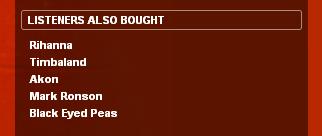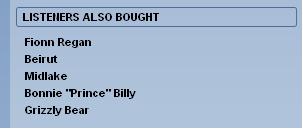A few people have responded either on blogs or in the comments on my (deliberately provocatively titled) post The VLE/LMS is dead, so rather than distribute my responses I thought I'd bundle them here.
Niall Sclater refers to some earlier attempts at the loosely coupled approach:
The model Martin describes of “loosely coupled teaching” was tried by Canadian schoolteacher Clarence Fisher who blogged about small pieces in November last year and had serious concerns about this approach
Amongst these were different URLs and skills. I'd respond by saying a year is a long time in the online world, and a lot of these issues have become easier - you don't need to have lots of different sites, you can pull them all into one easily, e.g. having your flickr photostream in your blog. And also the awareness of users has changed a lot in the past year - after all, how many of us would have said that Facebook widgest would be a viable means of communicating with students a year ago?
Niall goes on to say
However it is possible that the VLE will evolve into more of a management information system, working away in the background, with its information exportable to a variety of other systems under the control of students who wish to view it in environments they prefer
Yes, I'd agree with this (although whether we'd call it a VLE then is debatable). If we wanted to overcome some of the problems mentioned earlier then some form of student portal would be necessary - you wouldn't have to remember all your urls since the sites would be pulled in to your portal. And this would be one way of addressing the authentication issue too. I am rarely prophetic (although frequently pathetic), so I'll grab it while I can - I ended my VLE book by saying
In this scenario a learner’s environment is more akin to a portal with a collection of tools and content, some of which are provided by the institution and others by external parties. The VLE ceases to be a convenient term or concept at this stage. So, one could argue that, rather like the male praying mantis, the ultimate sign of the VLE’s success is its own demise.
Niall also mentions educators attitudes as does Steven Verjans, who states
not all higher ed teachers - or students for that matter - are as technologically savvy as we think them to be.
This is undoubtedly true, but I think reflects the often poor nature of technologies developed by higher educational institutions which require a four day training course to grasp. Millions of people use flickr, Facebook, wikis, Twitter, etc everyday - because they are simple to use and compelling. My response to this is 'exactly, which is why we should give them the best technologies available which are roadtested by millions, and whose developers have a real interest in making them simple.'
But I know what he means, there are many educators who are just not going to engage with this no matter how easy it is. So, I think that the university still has a role here, my vision would be that it provides a set of tools they can select from, all of which are loosely coupled, and integrated at the back end with student systems as required. I'm an academic, I want a basic course, sure, here's a wikispace wiki, with discussion board, and here's a Wordpress blog, off you go.
The point is that if I do want to use other systems, I'm not prevented from doing so because we are operating a lowest common denominator approach.
Alan Cann suggests that students want the university to provide these services:
The walled garden of the VLE provides a "trusted brand" (as Grainne Conole discussed at OpenLearn2007) which is very attractive to students. Otherwise, why would they want to pay us £3k a year for tuition - and then use Google?
Students hate PLEs (but they also hate being forced to use university services such as authenticated email accounts). "We are paying customers and we want value for money.
I'd start off by saying if the miserable use most universities put Blackboard to (or whatever LMS they have) constitutes value for money then we're all in trouble. On the more general point about students wanting this stuff provided I think that is changing - some anecdotal feedback from our digital photography course where we have provided an OU system to share photos seems to be 'yes it's fine, but we want Flickr,' because that is the tool they are accustomed to.
If universities are using third party systems I don't think students will care particularly, as long as they are getting the best experience they can.
I guess what I'm suggesting is a kind of middle ground between the institutional, one size fits all VLE and the complete anarchy of a PLE. We allow educators to use tools available elsewhere, while making recommendations, and concentrate on providing a framework to use these within (both technical and pedagogic).
I don't expect this to happen quickly, but I do get a sense we are approaching the tipping point. This will be realised through a range of tools which are easy to use and familiarity amongst educators and students.

